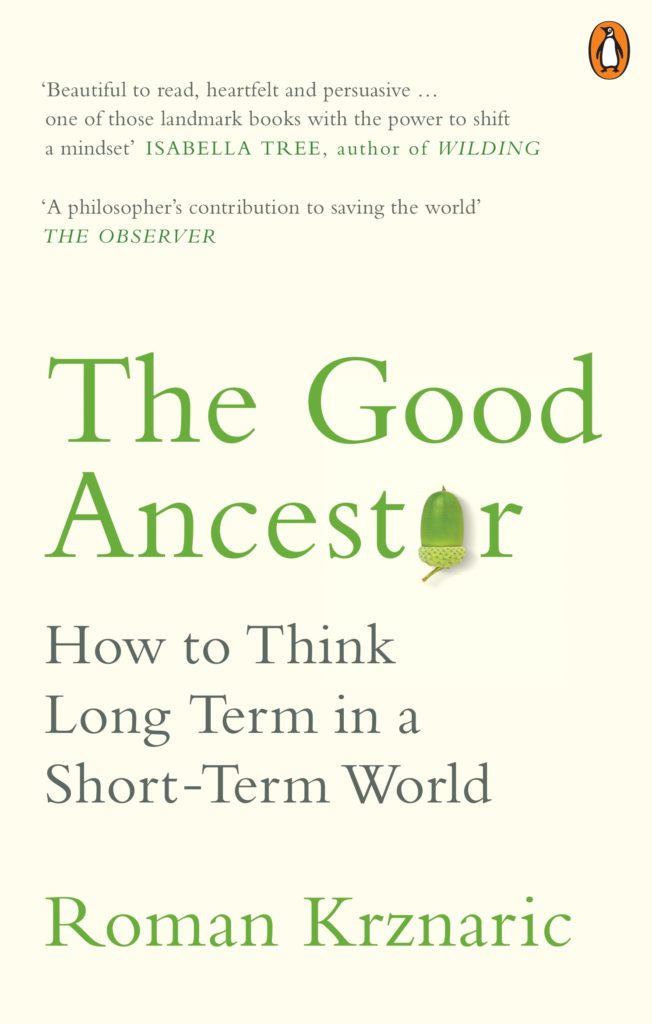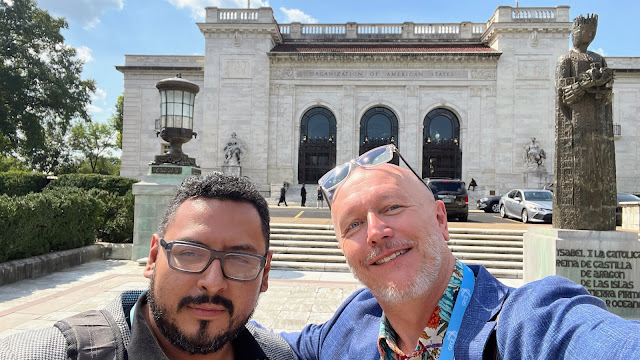I got an invite to speak on a panel at the Global Forum for Cybersecurity Excellence‘s Annual Meeting last week. It was my first time in DC since I went on a trip there with Air Cadets in the 1980s, so it was an exciting prospect. More so when I saw it was going to be taking place in the Organization of American States’ building.
Attending these things is a high wire act for me as it looked like I was going to have to self fund my way there, but then the OAS’s Cybersecurity directorate got in touch and asked if I’d sit on one of their emerging technology panels for the region of the Americas pre-GFCE meeting too, so I managed to get hotel and flights covered.
I got in on Sunday and my hotel was in Georgetown, so I got out and about and soaked up some Washington area history – the place is thick with it!
Day 1
I got there sweaty (DC got up to about 30°C each day) but cooled off and our talk that morning about emerging technology impacting cybersecurity was wide ranging. Kerry-Ann, our moderator, surprised me with a question about how approaching cyber challenges as a technician gives me a different (and valuable thanks to how she framed the question) insight into the rapidly changing state of things.
Many of the panels focused on the clear and present danger in cyber at the moment: artificial intelligence. From the automation of big data analysis that humans never excelled at on the defensive side to how criminals are leveraging GenAI to produce customized phishing material well beyond grammatically incorrect emails (stretching to include deepfake video, voice, photos and other digital media), these talks were designed to assist policy makers with understanding what has come out of Pandora’s box of AI.
One theme that resonated with me was how people don’t want deep technical explanations of these emerging technologies. What they want is an easy to grasp explanation of how these technologies will affect the digital spaces they work in. This remains a problem in cybersecurity and an even bigger one in the quantum world I just finished my secondment. The urge for academics to obfuscate and complicate their explanations of these rapidly emerging technologies doesn’t make them ideally suited for presenting on them, especially to the operations and policy people who are entirely focused on real world impacts and couldn’t care less how the maths goes.
My age is also handy. Being a genuine digital immigrant who remembers a time before personal computers and the internet (I got my first PC, a Vic 20, in 1979 when I was 10), I have a big picture outlook that those who have always lived in this chaos find helpful. My other secret weapon is a university background focused on thinking and communications (philosophy & English).
After the OAS event we had an evening meet and greet at the Museum of the Americas right behind the main building, which had a permanent collection of powerful pieces looking at colonialism and culture. Upstairs they had a Spanish diaspora collection featuring the people who fled Spain during the Franco period; powerful stuff.
Day 2
GFCE president, Chris Painter), but also profoundly insightful. When someone with extensive, top draw international research resources tells me that they aren’t worried about AI taking us down because climate collapse will get us first, I listen. Moments like this make me vividly aware of just how fragile the house of cards we’re standing on is.
Day 3
 |
| All of the delegates from dozens upon dozens of countries coming together in DC to make digital transformation secure and accessible to everyone. |
These GFCE events are thick with insights and opportunities that lift your head out of your personal context and prompt you to consider the big problems we face. I’ve tried to cover the main pieces here, but there are so many more that I’m still subconsciously noodling on.
I ended the event having lunch with Abdul, my swimming buddy from Accra, and Juan, my co-conspirator. What do you talk about at a Nigerian/Canadian/Mexican table? Abdul told me he is in ‘legacy mode’, which is a great way of framing your closing professional years. I enjoyed our talks in the pool at Accra City Hotel because Abdul always seems to see beyond the horizon. Taking a minute to soak up that wisdom is never wasted time. He was going to see his friend’s grave and visit his cousin after the event. These seemingly technical meetings can be profoundly human, if you let them be.
 |
| DC looking like a post card on the ascent out of Reagan Airport. |
.JPG) |
| Just over 500kms as the crow flies from DC, I was back in The Six before I knew it! |
from Blogger https://ift.tt/nCpglAM
via IFTTT












